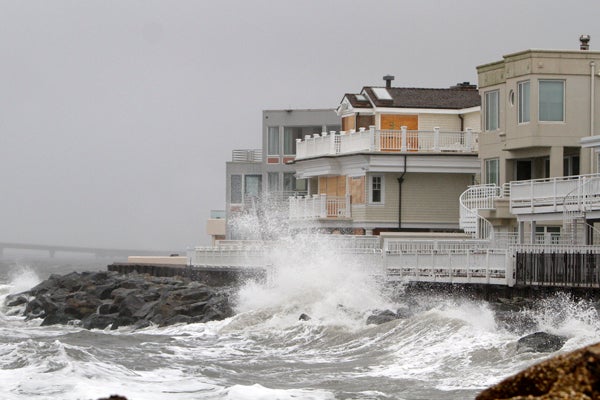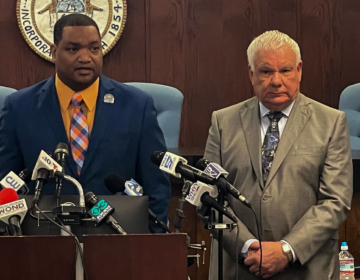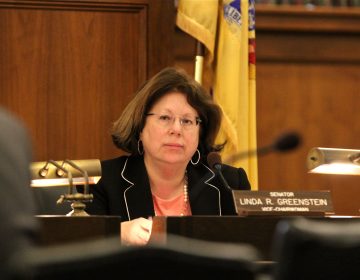Menendez: Vote to delay flood insurance rate hikes could happen late Jan or early Feb

Waves crash onto the sea wall protecting homes in Longport, N.J., Sunday, Oct. 28, 2012, as Hurricane Sandy approaches the area. (AP Photo/Joseph Kaczmarek)
The term “Biggert-Waters” may not be regularly tossed around at cocktail parties — except perhaps on certain parts of the Jersey Shore and other coastal communities — but it will get a bit more attention in 2014.
The Biggert-Waters Flood Insurance Reform Act of 2012 is a federal law that sought to make the National Flood Insurance Program more financially stable. However, opponents say it will also make flood insurance unaffordable for some policyholders.
Unlike homeowners’ insurance, which is a private market, flood insurance is backed by the federal government and run through the Federal Emergency Management Agency. Some homeowners — about 20 percent of policyholders — get discounted or subsidized flood insurance rates. But after Hurricane Katrina in 2005 and other pricey floods, Congress decided to phase out these subsidies and make other changes to shore up the National Flood Insurance Program’s finances, so that over time homeowners would pay premiums that better reflected the risk of flooding for their property.
However, some homeowners say these changes will cause their premiums to skyrocket — costing them tens of thousands of dollars a year and threatening their ability to stay in their homes after Superstorm Sandy.
That’s prompted legislators, including Sen. Mary Landrieu (D-Louisiana) and Sen. Robert Menendez (D-New Jersey), to delay some of the Biggert-Waters reforms through new legislation, The Homeowner Flood Insurance Affordability Act. If passed, it would delay rate increases for four years, except for businesses and homes that have repeatedly flooded.
“We think that [delay] makes eminent sense,” said Senator Menendez. “Both in terms of making sure people keep their most valuable asset in their life, which is their home, and creating long-term viability for the program because … they won’t walk away from it.”
The bill would also require FEMA to study the affordability of the Biggert-Waters reforms for homeowners and vouch for the science of the flood maps it creates, which are used to set insurance rates. Menendez questions their accuracy.
In late 2013, Senate Majority Leader Harry Reid promised to finally bring the bill up for a vote in early 2014 — Menendez expects it to be in late January or early February — and there’s similar talk for a House version of the bill.
The Homeowner Flood Insurance Affordability Act has both Republican and Democratic co-sponsors in the Senate and the House, but the changes it seeks have still faced a tough road thus far. Senators have been drafting amendments and bills to change Biggert-Waters since May without success. Critics counter Biggert-Waters is needed to stabilize the finances of insurance program and that homeowners shouldn’t get government subsidies if they choose to live by the water or in a floodplain. The editorial boards at the Wall Street Journal, New York Post, Newsday, and even two New Jersey papers — the Asbury Park Press and the Newark Star-Ledger — have all spoken out opposing these delays.
Still, with the promised upcoming vote, this bill has the best chance it’s had so far.
WHYY is your source for fact-based, in-depth journalism and information. As a nonprofit organization, we rely on financial support from readers like you. Please give today.




